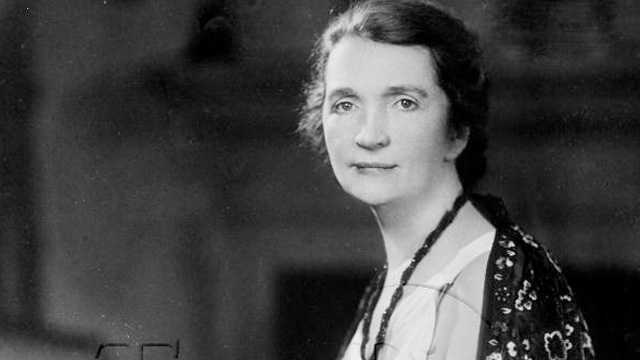The Sanger Problem

Margaret Sanger is truly one of the great Americans, but one with just one tiny problem……..her embrace of eugenics. This like dealing with Lyndon Johnson, who looks great until you remember that small issue of the Vietnam War. Now, eugenics was a complex movement and there were lots of Black eugenicists as well. But there’s no real excusing this–it was a racist time and Sanger was by no means immune from that. Given Sanger was the founder of Planned Parenthood, how should that organization today deal with the issues of their founder. I thought this op-ed by Alexis McGill Johnson, currently president of Planned Parenthood, to be pretty right on in what to do here.
Sanger thought birth control would liberate women, and in so many ways it has. According to a University of Michigan study, the availability of the birth control pill is responsible for roughly a third of women’s wage gains since the 1960s. Reassessing Sanger’s history doesn’t negate her feminist fight, but it does tarnish it. In the name of political expedience, she chose to engage white supremacists to further her cause. In doing that, she devalued and dehumanized people of color.
We will no longer make excuses or apologize for Margaret Sanger’s actions. But we can’t simply call her racist, scrub her from our history, and move on. We must examine how we have perpetuated her harms over the last century — as an organization, an institution, and as individuals.
What we don’t want to be, as an organization, is a Karen. You know Karen: She escalates small confrontations because of her own racial anxiety. She calls the manager. She calls the police. She stands with other white parents to maintain school segregation. And then there are the organizational Karens. The groups who show up, assert themselves, and tell you where to march. Those who pursue freedom and fairness, but also leverage their privilege in ways that are dehumanizing.
And sometimes, that’s how Planned Parenthood has acted. By privileging whiteness, we’ve contributed to America harming Black women and other women of color. And when we focus too narrowly on “women’s health,” we have excluded trans and nonbinary people.
As we face relentless attacks on our ability to keep providing sexual and reproductive health care, including abortion, we’ve claimed the mantle of women’s rights, to the exclusion of other causes that women of color and trans people cannot afford to ignore. And when we are rightfully called out by other leaders in the movement for reproductive justice who have pushed us for years to do better, we cry. In doing so, we’re failing in our mission to care for all the communities we serve.
We are committed to confronting any white supremacy in our own organization, and across the movement for reproductive freedom. We pledge to fight the many types of dehumanization we are seeing right now: the dehumanization of Black and Latino victims of police violence such as Adam Toledo, Daunte Wright, Breonna Taylor, George Floyd and too many others. The dehumanization of transgender people whose health care and rights are being denied in states across the country, and who face attacks not just from the right but also from trans-exclusionary radical “feminists.”
Some might see this as virtue signaling, but Planned Parenthood is taking this work seriously. Our senior leadership team is diverse. We have invested in training designed to give everyone, from the board room to the exam room, a foundational understanding of how race operates. And we are establishing new diversity, equity and inclusion standards for affiliates seeking to be a part of the Planned Parenthood Federation.
This is right. The point of dealing with racism in society, past and present, let’s say in the schools, is not to reject all people who are racist and define ourselves as somehow better. It’s to recognize that racism is a condition of being white in America and that we need to purge those ideas, not the people who had those ideas. Because if we did that, we would be purging ourselves too, as we also have racism deeply embedded within us. There’s no reason to embrace Sanger and there’s no reason to completely reject her either. What we shouldn’t do is reflexively defend her because we need heroes and don’t want to take her problematic side seriously. That’s a good model for how we deal with race in both the past and the present and kudos to Planned Parenthood for doing this the right way.
